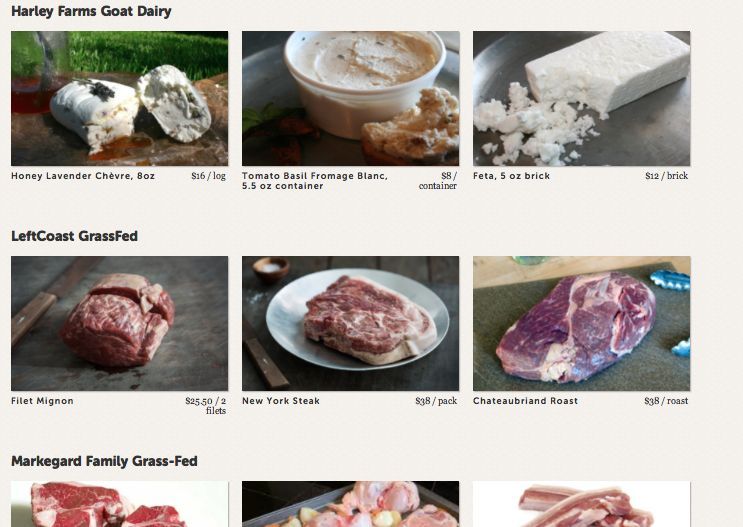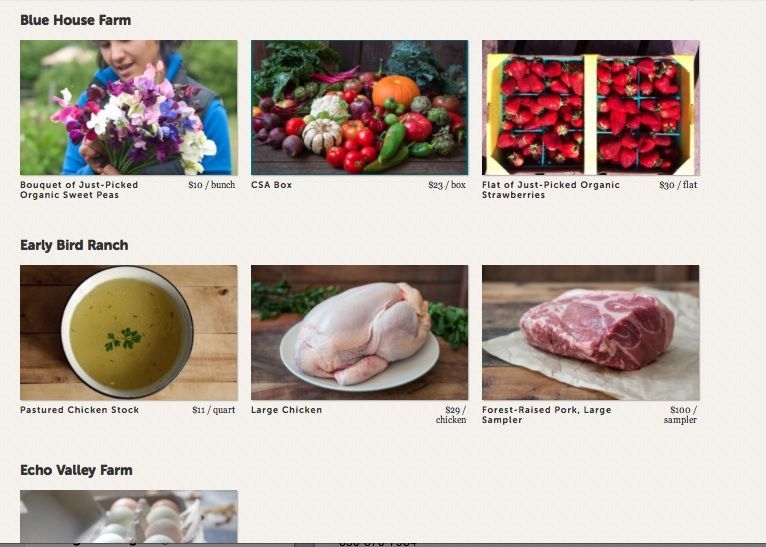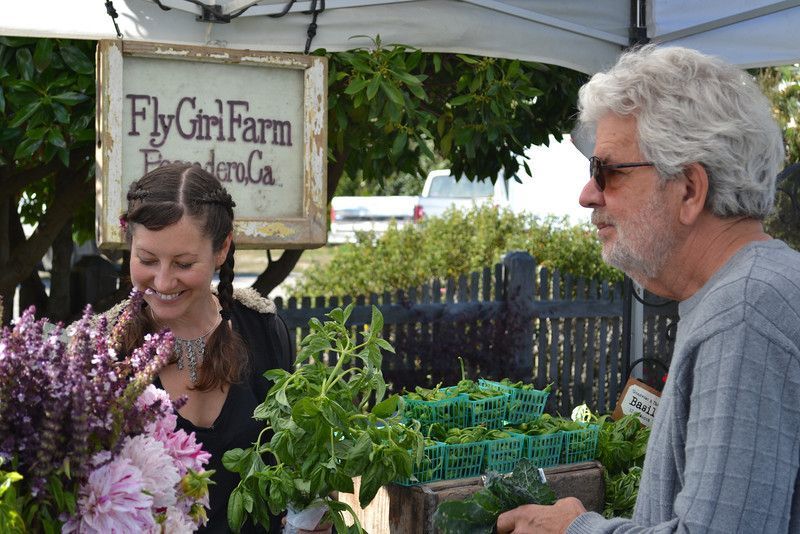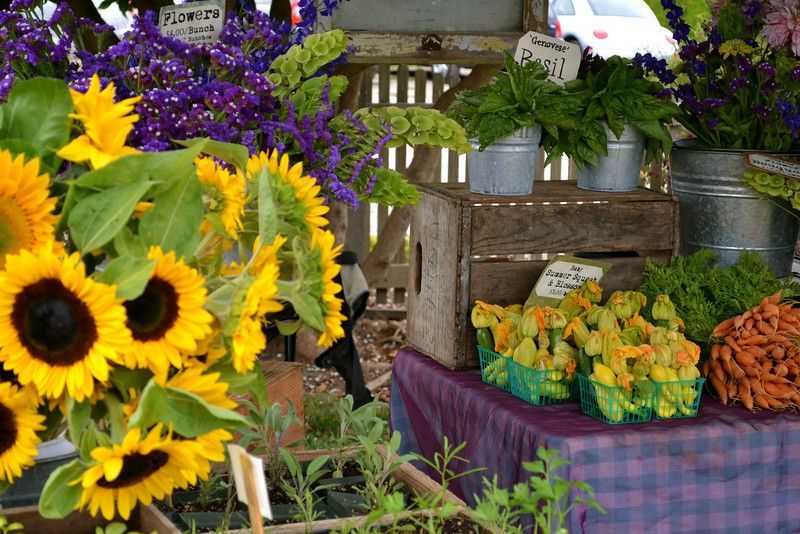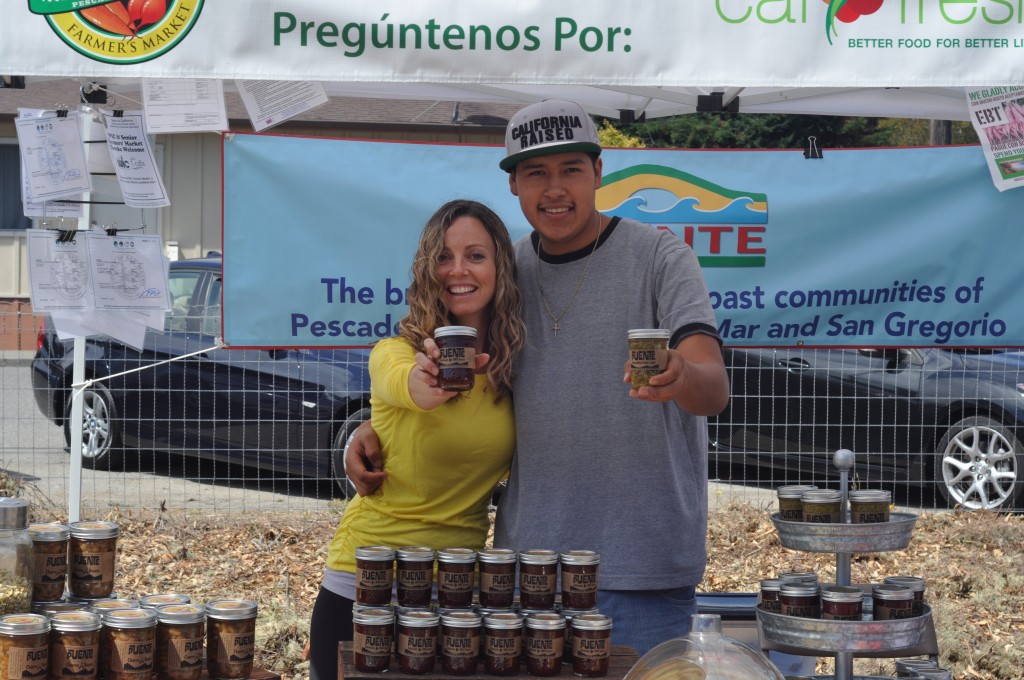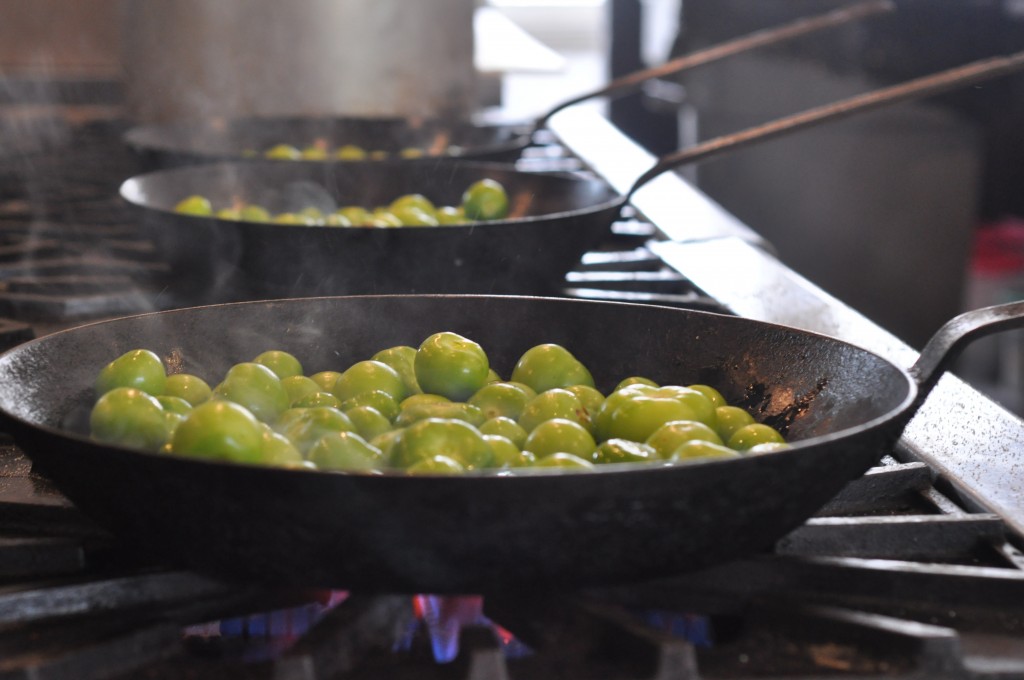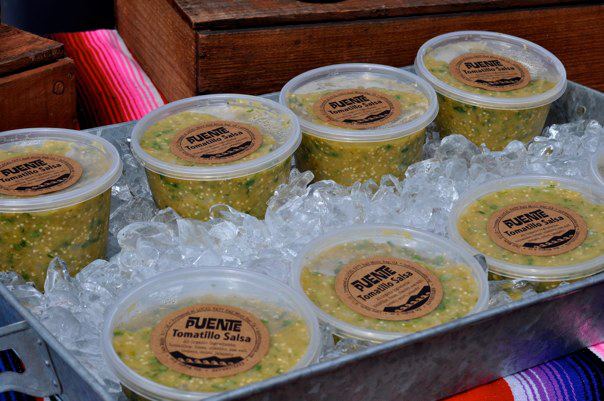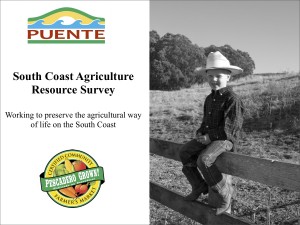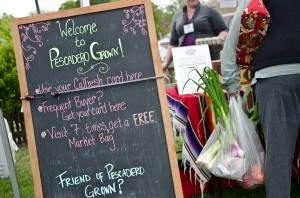June 27 brings two major developments to Pescadero’s burgeoning local food scene: the opening day of the third annual Pescadero Grown! Farmers’ Market and the launch of the Pescadero Grown “Webstand” on GoodEggs, an online market for the freshest small-farm produce, meat and cheese.
When it launches, the Pescadero Grown Webstand will give eager eaters – in San Francisco and beyond – the chance to order an aggregated box of freshly prepared farm food from seven Pescadero-based producers, and have it delivered directly to their homes, or to a pick-up point nearby.
“Good Eggs is a platform that brings us together, a platform to celebrate Pescadero,” says James Reid, Director of Marketing and Promotion for Harley Farms Goat Dairy. “What a great thing it is that if you live in Berkeley, it can all come straight to your doorstep.”
Harley Farms joins an all-star roster of farms and ranches uniting forces on the Pescadero Grown Webstand. The others are Blue House Farm, Early Bird Ranch, Leftcoast Grassfed, Markegard Family Grass-Fed, Echo Valley Farm, Tunitas Creek Kitchen, and Puente’s own in-house brand of homemade salsa and jam products. The Webstand will also have a section devoted to local events, allowing farms and ranches to sell tickets to special farm tours, workshops, and dinners.
It is the first time an entire group of food purveyors has joined together to offer a cornucopia of regionally-branded products on GoodEggs, which typically helps individual producers market themselves to a wider audience.
“The idea is to create a brand for the region itself,” says Puente Executive Director Kerry Lobel. “With the globalization of food, we have to find every way we can to feature local growers and producers.”
One major perk for farmers and ranchers is that with GoodEggs, they can focus more on growing the farm and less on chasing after the consumer at farmers’ markets in distant cities. None of the small farms in Pescadero have any staff to spare.
“Historically, we’ve all been very independent. As economics change, you realize, ‘I didn’t get into this business to drive to every corner of California to sell seven days a week,’” says Doniga Markegard, who owns Markegard Family Grass-Fed with her husband. “Now we have all this new time that we can devote to growing and becoming more profitable.”
GoodEggs users will also be able to order a customized box of food and have it held for them at the Pescadero Farmers’ Market. To find the Pescadero Grown Webstand, visit http://www.pescaderogrown.org/order after June 27.
Pescadero Grown! vendors in person, in Pescadero and San Francisco
Of course, the original meet-the-farmer relationship experience is still available at the Pescadero Grown! Farmers Market, which opens on June 27 and occurs at 251 Stage Road in downtown Pescadero every Thursday through October 31. The June 27 opening event will feature live music by Mariachi band Los Cachorros as well as entertainment from DJ Larry, face painting, ribbon cutting by Supervisor Horsley and other surprises.
Most, if not all if the featured Pescadero Grown Webstand vendors will be there in person, along with many other locally beloved flower, fruit and vegetable farmers, like Farmageddon and Fly Girl Farm.
Puente continues to be mindful of the fact that many families who live on the South Coast and harvest our produce often can’t afford to buy the same fresh fruits and vegetables they help grow. To that end, this year Puente will continue to offer Market Match incentives to help low-income Coastsiders qualify for discounted Farmers’ Market products. The program, funded through the California Farmers’ Market Consortium, matches existing discounts offered through WIC and CalFresh (food stamps) programs. At the end of the day, shoppers save $20 or more on fresh food.
Friends at the Coastside Farmers’ Markets in Half Moon Bay and Pescadero offer both CalFresh and Market Match Discounts, as well.
New this summer, starting in August, some Pescadero farmers will also sell their products at The Second Act on Haight Street, home of the former Red Vic Movie House. The iconic San Francisco gathering spot, which is owned by Puente friends Betsy and Jack Rix, will be reborn as a community event space with a small collection of food stalls.
More details to follow later this summer. Stay tuned!
For more information, visit www.pescaderogrown.org.

